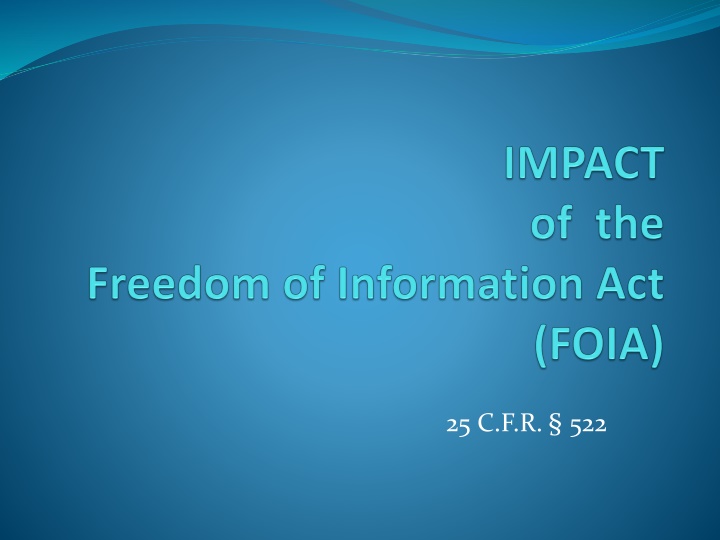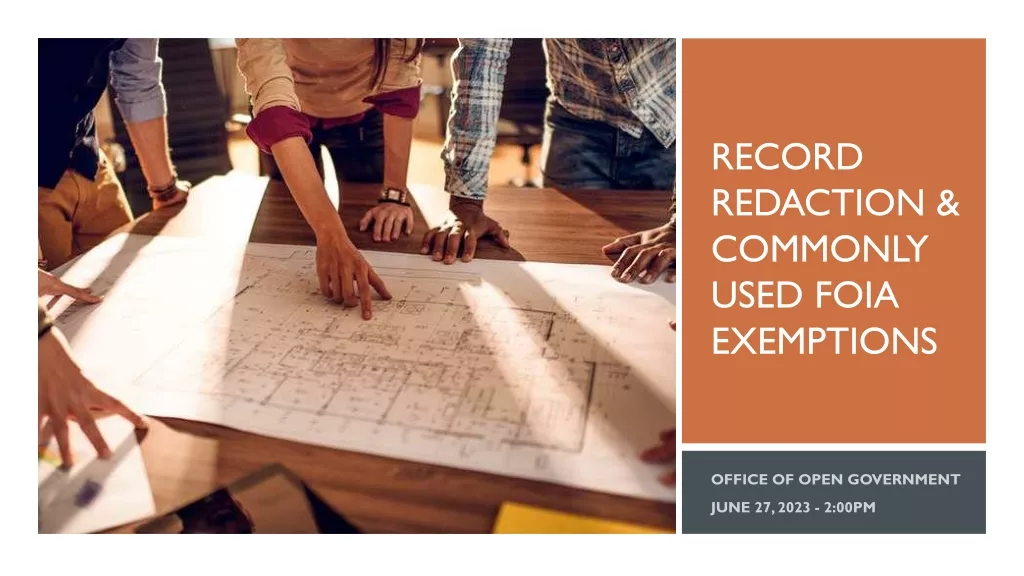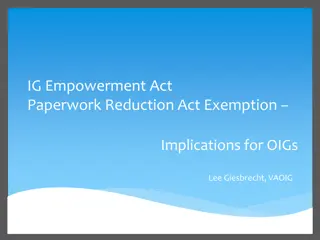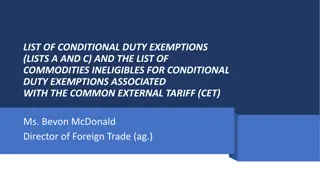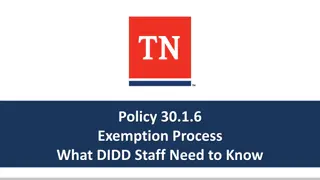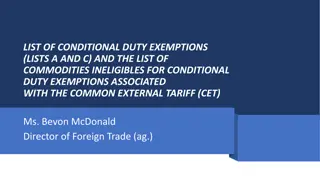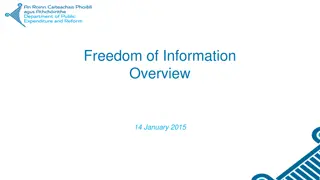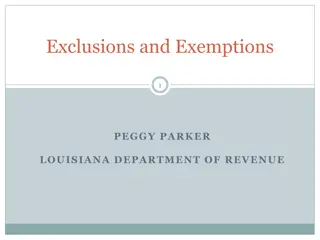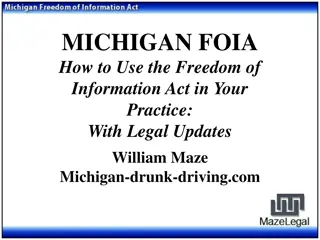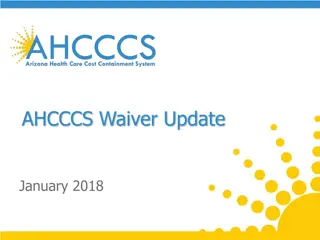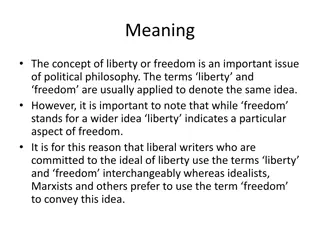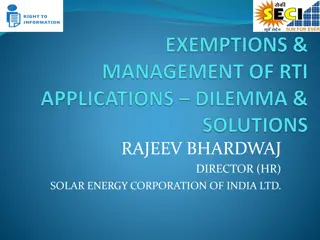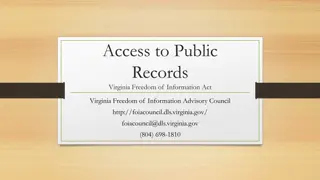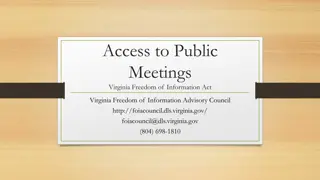Overview of Freedom of Information Act (FOIA) and Exemptions
President Lyndon Johnson signed the Freedom of Information Act (FOIA) into law on July 4, 1966, providing access to federal agency records unless protected under certain exemptions. The act aims to balance public disclosure and government protection needs through 9 exemptions, safeguarding interests like national security and personal privacy. Agencies must assess if disclosure harms protected interests, utilizing a two-part test. Exemptions like trade secrets and personal privacy ensure sensitive information remains confidential.
Download Presentation

Please find below an Image/Link to download the presentation.
The content on the website is provided AS IS for your information and personal use only. It may not be sold, licensed, or shared on other websites without obtaining consent from the author.If you encounter any issues during the download, it is possible that the publisher has removed the file from their server.
You are allowed to download the files provided on this website for personal or commercial use, subject to the condition that they are used lawfully. All files are the property of their respective owners.
The content on the website is provided AS IS for your information and personal use only. It may not be sold, licensed, or shared on other websites without obtaining consent from the author.
E N D
Presentation Transcript
A democracy requires accountability and accountability requires transparency. President Obama s FOIA Memorandum January 21, 2009
Overview July 4, 1966- President Lyndon Johnson signed into law the Freedom of Information Act (FOIA) FOIA provides any person with the right of access to federal agency records, unless those records are protected from disclosure under law
Overview Congress sought to create a workable balance between the right of the public to know and the need of the government to protect certain information. Congress included 9 exemptions in FOIA to protect certain information from disclosure Exemptions protect interests such as national security, personal privacy, privileged information, and law enforcement
Overview Agencies must determine whether they reasonably foresee that disclosure would harm an interest protected by one of the exemptions Two-part test for Agency Records created or obtained by an agency Under agency control when request received
Possible Gaming Information Exemptions Exemption #4 Protects trade secrets or commercial or financial information obtained from a person that is privileged or confidential Exemption #5- Protects inter-agency or intra-agency documents which would not be available by law to a party other than an agency in litigation with the agency Exemption #6- Protects information in personnel, medical, and similar files when disclosure would constitute an unwarranted invasion of personal privacy Exemption #3- Protects information explicitly exempted from disclosure by statute
Exemption #4-Criteria Test to determine if information is privileged or confidential Must meet 3 requirements: 1. Must contain commercial or financial information. 2. Must be obtained from a person. 3. Must be privileged or confidential.
Exemption #4-Criteria Test to determine if information is privileged or confidential under exemption #4 depends on: 1. Information voluntarily submitted, considered confidential if it is information that is not customarily released to the public. 2. Information required to be submitted. (a) impairs the government s ability to receive information (b) cause substantial competitive harm to the competitive position
Processing FOIA request 43 C.F.R Part 2 Consultation required. ( 2.27) Records contain both exempt and nonexempt information, must consult with Solicitors ( 2.25) Document contains both exempt and nonexempt material, must separate and release the nonexempt information. ( 2.25) Agency is responsible for deciding whether information will be released. ( 2.32) Objections must be detailed written objections to release. ( 2.31) Must notify original submitter of release against objections- allow 10 workdays to judicially intervene ( 2.33)
Issues Tribal Revenue Allocation Plans Fee-to-Trust Information subject to FOIA (financial information) Receive large number of FOIA requests Backlog of FOIA requests Limited staff resources/ Large workload No FT staff available to process FOIA requests
Suggestions Submit both a redacted and un-redacted version of document Submit with reasoning for exemption to be applied to withheld information Post a redacted copy of RAP on Tribe s website When requesting information- be as specific and detailed as possible with what documents requesting Avoid from broad and vague requests
